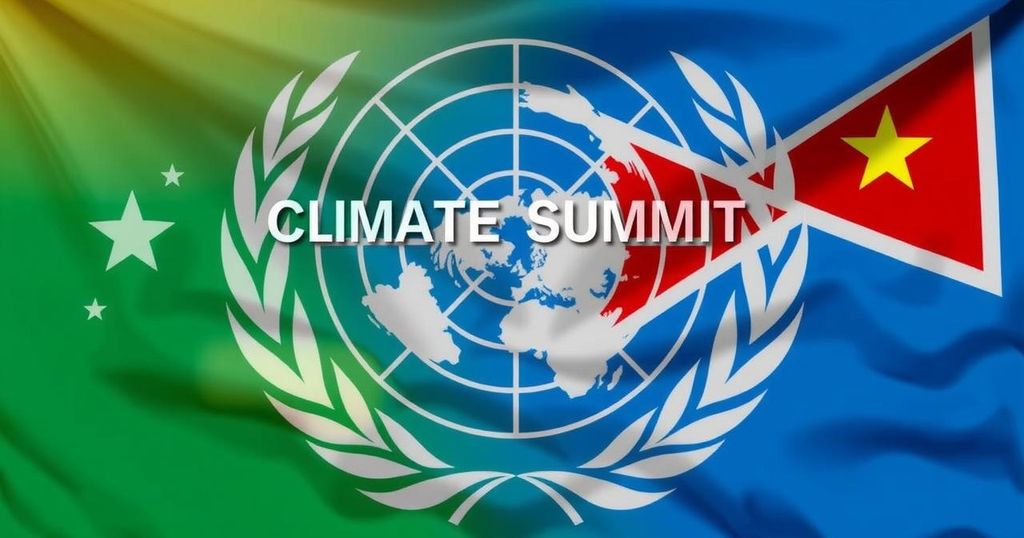Papua New Guinea has declared its intention to boycott the upcoming UN climate summit, condemning it as a “waste of time” due to ineffective negotiations and unfulfilled promises from major polluters. Foreign Minister Justin Tkatchenko has criticized the lack of action taken in response to climate change, stating that the country would focus on bilateral agreements instead of participating in COP discussions.
Papua New Guinea has announced a significant decision to boycott the upcoming UN climate summit, labeling the event as a “waste of time” characterized by empty assurances from the world’s largest polluters. Foreign Minister Justin Tkatchenko articulated the country’s disillusionment with the negotiations, expressing frustration over the lack of concrete outcomes, particularly for nations heavily impacted by climate change. He remarked, “There is no point going if we are falling asleep because of jet lag because we are not getting anything done.” Papua New Guinea is recognized for hosting the third-largest rainforest globally and has been lauded for its critical role as one of the Earth’s “lungs.” Nevertheless, as a developing island nation susceptible to the adverse effects of climate change, it has voiced concerns regarding ineffective climate commitments made at previous COP summits. Minister Tkatchenko stated, “COP is a total waste of time. We are sick of the rhetoric as well as the merry-go-round of getting absolutely nothing done over the last three years.” Indeed, the country has expressed a desire to engage in bilateral climate agreements, particularly with like-minded nations such as Singapore, instead of participating in what Tkatchenko termed “talkfests.” With some Pacific island nations on the brink of extinction due to rising sea levels, the call to boycott the COP summit reflects broader concerns about the efficacy of international climate negotiations. The announcement has reportedly been welcomed by other Pacific states who share similar sentiments of frustration regarding their underrepresentation in climate talks. Papua New Guinea aims to pursue its climate objectives outside the framework of the COP, insisting on direct engagement with other nations to achieve meaningful progress in combating climate challenges.
Papua New Guinea’s climate negotiations stance highlights a growing skepticism towards international climate summits. The COP summits, established to facilitate global cooperation on climate change, have faced criticism for their perceived ineffectiveness and the dominance of major polluters in skewing negotiations to favor their interests. This sentiment is exacerbated by the dire situation facing vulnerable nations, particularly in the Pacific, which face existential threats from climate change. The country’s decision to boycott is emblematic of a broader call among developing nations for a more authentic and actionable commitment to combating climate change, rather than simply verbal commitments that remain unfulfilled.
In conclusion, Papua New Guinea’s boycott of the upcoming UN climate summit underscores a significant shift in attitude among vulnerable nations towards the global climate negotiation process. Highlighting a lack of tangible results and frustrations with established procedures, Papua New Guinea aims to pursue independent climate strategies that promise more direct outcomes. This decision is poised to resonate with other nations facing similar challenges, potentially reshaping dialogue around climate commitments and accountability.
Original Source: www.voanews.com






